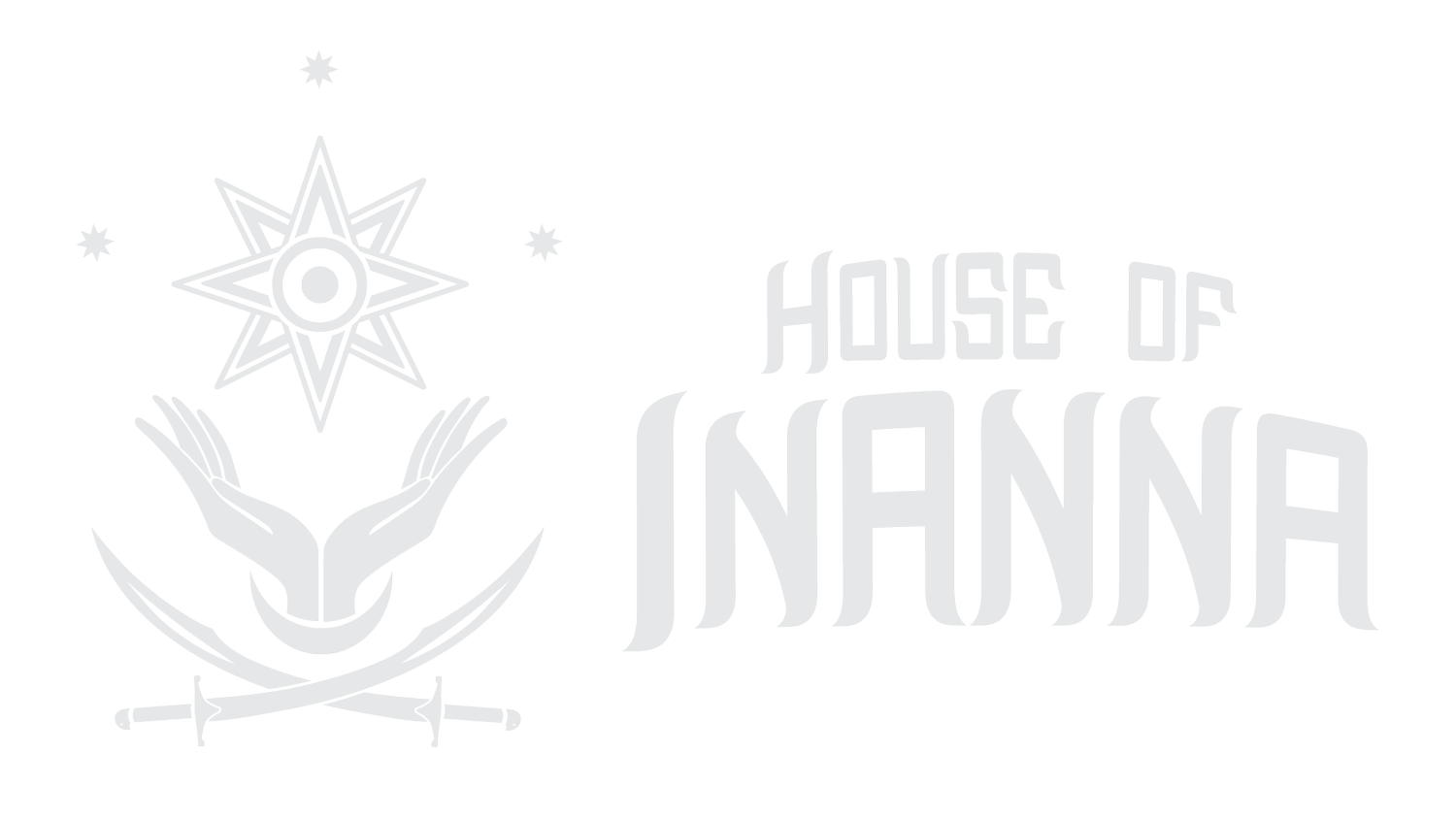
Inanna
“And when you dress in my robes, I shall dance in your feet and sing in your throats. No man shall be able to resist your enchantments…”
— Randy P. Conner, author: “Blossom of Bone”
House of Inanna: House of Who?
Inanna is a goddess of ancient Sumeria
Inanna is unique among female deities in her personal journey and characteristics. She is one of the earlier known goddesses on the Inanna-Ishtar-Asherah-Aphrodite-Venus continuum.
Inanna (pronounced i-NAH-nah with a short “I”) is variously represented as a goddess of love, war, and fertility. She was a major goddess during those ancient times, with many priests and priestesses worshiping her. She is a very human goddess, multidimensional like us, as opposed to representing only one aspect of life — for example, Venus was reduced to only being a goddess of sexual love, although she surely started out representing far more than that.
Inanna’s stories start off…
…with her as a young woman who has nothing too special about her, except that her parents are gods. Fairly uniquely among female deities*, she initiates a trip into the underworld for herself. She lets go of clothing and accoutrements that symbolize, among other things, her wealth, status, and beauty. She is flayed alive in the underworld — a sort of shamanic dismemberment — and is eventually saved by allies and born again into the land of the living.
There are several variants on this story, but the main thrust of it — a young woman finding her own way, dealing with troubles, having to give up some things to have others — resonates with me. So many myths of this type have a male hero — notably the Arthur cycle, as well as Ulysses, to some degree. It’s nice to have a female role model!
At one time our troupe name was Gipar Inanna, translating roughly as “Dwelling (or Temple) of Inanna.” But that was too confusing for the poor announcers who were attempting to roll this name off their tongues, so we made it simpler. “House” can also mean “temple” or “dwelling,” as seen in many religions of the African Diaspora.
~ Petra
Another such goddess: the Boddhisattva Tara
It’s told that the male monks in her village taunted her regarding her devotion to Buddhism, saying, “Too bad you’re a woman — if you were a man, you would be a Boddhisattva!” Then… she became one. A good resource for her: taradhatu.org. Om! Tare Tutare Ture Svaha!
More information:
Wikipedia: Inanna
Inanna’s Descent: An Archetype of Feminine Self-Discovery and Transformation by Andrea Deagon
Star Light’s The Secret Doctrine of Being Beautiful
UNRV: Venus
Images of Inanna:
Inanna, by Wendy Andrew
Inanna, by Thalia Took
Inanna, from Barbara Knott
Inanna jewelry & more, from Sacred Source




